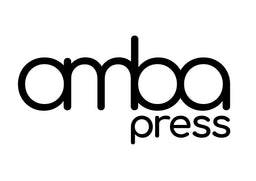We want to officially introduce you to our editor, Andrew Campbell.
We asked Andrew five questions:
Tell us a little about you and your work?
I am a second-generation editor. My father was a poet, but his day job as editor for School Publications in Wellington and then the New Zealand Council for Educational Research paid the bills. I studied anthropology at university but was always interested in publishing. I was given my first freelance job (editing a book on military history) by Graham Wiremu at Reed Methuen, and eventually I built up enough work to become a full-time editor. After doing that for a year or so, one of my clients – Heinemann Publishers – offered me a job as in-house editor, and when both Reed Methuen and Heinemann were taken over by the ominously named Octopus Publishing Group I became managing editor in the new business.
Since then, I have had stints in primary educational publishing (Sunshine Books) and legal publishing (CCH/Wolters Kluwer, where I worked with Alicia), and in 1990 I started my own publishing house, Godwit Press, which was eventually bought by Random House and continues as its main non-fiction publishing arm in New Zealand.
I returned to the freelance fold in early 2023, and since then I have worked for Penguin Random House, Pearson Australia, Auckland University Press, Bateman Books, Upstart Press, and of course Amba Press.
Why work with Amba Press?
I have always regarded teaching as one of the most important (and often undervalued) professions. As a child, my own teachers had a huge impact on me – especially my secondary school English teacher, Neil Clayton, who drummed the rules of grammar into my adolescent brain with humour and persistence – and I have been equally impressed by the wonderful teachers who have worked so tirelessly to give my children a good education. Amba Press play a pivotal role in supporting and inspiring educators (and parents) in Australia and New Zealand, and if I can add value to that process through my editorial input, I am happy to do so.
What’s your favourite part of editing books?
A subject-matter expert – such as an educator or psychologist – may have something important and interesting to say about a particular topic, but they may not be a consummate wordsmith; and even if they are, nobody’s writing is ever 100% accurate. My job is to review the manuscript, address any minor errors or inconsistencies, resolve any queries that crop up, and give it a final polish, so that the reader can focus on the content and not be distracted by any imperfections or ambiguity. This involves working closely with the author and ensuring that their unique voice is preserved.
There is something very satisfying about this collaborative process, especially when the author is delighted with the results – as they often are.
When you are not whipping our manuscripts into shape, what do you do with your time?
Apart from my family, music is my biggest passion. I play the guitar, harmonica and mandolin and enjoy singing. There is a drumkit and PA system set up in my lounge in readiness for spontaneous jam sessions or the occasional karaoke night.
I have been learning Spanish for many years, which I love, although I will probably remain stuck at level B2 unless I move to Spain or Mexico. I listen to a Spanish podcast every morning while I take the dog for a walk and practise verb conjugations when I have a few minutes to fill in.
Speaking of the dog, he (a scruffy huntaway called Locke) is also an important part of my life, along with our cats, Prince and Marigold.
We assume you read for pleasure. Three recommendations?
I certainly do. There’s nothing quite like being buried in a book – preferably a real one, with its distinctive smell and feel (and lack of radiation!).
I have enjoyed all of Ian McEwan’s novels, but his most recent one, Lessons, resonated with me in unexpected ways. McEwan and I both went to the same English boarding school, where an important part of the novel is set, and I even had piano lessons in the same building as Roland, the protagonist – though with less-disturbing consequences. It’s a fascinating and mysterious book with a satisfying ending.
These days I am a mainly vicarious traveller, and I can’t resist a good travel book – especially one with a Spanish setting. The Santiago Pilgrimage by Jean-Christophe Rufin is a charming account of the author’s 800-kilometre walk along the “Northern Way” to Santiago de Compostela, which I suspect is more enjoyable to read about than to actually do.
I also love a good thriller, especially one with an exotic setting, and Donna Leon’s Commissario Brunetti novels, set in Venice, tick all the boxes. Interestingly, these novels (31 to date) have been translated into many languages, but not Italian, as the author likes to visit Italy without being recognised. I would recommend starting with Death at La Fenice and working through the list in chronological order.



